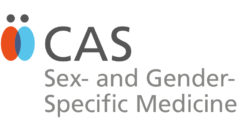Date: 26 – 27 February 2025
Place: Bern
Language: English
Registration deadline single module: 19 February 2025 Registration
Fee: two-day module CHF 500, single-day booking CHF 280
Credits:
1 ECTS point two-day module
14 CME points “Schweizerische Akademie für Psychosomatische und Psychosoziale Medizin SAPPM”
Objectives of the module
Participants
- can recognize sex and gender specificities in a selection of primary care topics (pain management, prevention, care of older patients)
- develop a critical awareness of common gender stereotypes that might bias clinical activities and management of patients in primary care
- include intimate partner violence into the health issues to be addressed by general practitioners
- acquire knowledge about specific needs of LGBT+ people in primary health care
- engage in a reflexive exercise to identify how one’s social position influences the relation to others in clinical practice
Content of the module
Sex and gender specificities in primary health care are well known and documented. Cardiovascular symptoms are less recognized in women for example, whereas depression is not addressed and undertreated in men. In fact, gender bias can occur all along a consultation: how patient history is taken, how prevention is practiced, how referral to specialists is conducted, or how pain is managed. Furthermore, primary healthcare providers must adequately address gender-related aspects such as intimate partner violence or LGBT+ people specificities and needs.
This module aims at providing an overview on sex and gender differences in the vast domain of primary health care and brings tools to address gender-specific questions in the privileged setting of the general practice.
In concrete terms, the module comprises the following blocks:
- Primary Care and Family Medicine (EG)
How to incorporate gender into clinical practice? Identifying and discussing gender-specificities and gender-stereotypes through the steps of clinical reasoning in primary care, i.e. taking patient history, conducting physical and lab exams, bringing differential diagnosis, and management of patients. Gender-specific needs and challenges in patient management and frequent gender bias are discussed in this block.
- Pain management (CC)
Pain management is a field that currently gathers and disseminates data on how women and men are not equal facing pain. Biological factors such as hormones might influence pain pathways, and social factors (gender norms and stereotypes)strongly influence how pain is expressed by individuals but also how pain is managed by healthcare professionals. These aspects will be explored in this block.
- Prevention (SOP)
Gender differences have been described in participation in primary prevention interventions, whereby men tend to participate less. Gender differences are also described in risk perceptions and in social representations of health risk factors in the population. Should prevention interventions account for such gender differences and adapt approaches, targets and messages to be gender-specific? In this block, we will discuss existing approaches, possibilities and challenges.
- Aging (YM)
Gender-specific differences accumulate over the course of a lifetime, leading to important differences in how older men and women experience health, health care, and functional impairment. Variation in certain diagnoses and drug prescriptions will be highlighted, as well as the impact of differences in social contexts between older men and women.
- Intimate partner violence (IPV) (NRG, JLB)
- Data on IPV show that women are heavily burdened.
- WHO ecological model to understand risk factors and guide prevention.
- Primary care physicians have a key role to play in collaboration with the cantonal and regional networks.
- LGBT+ in primary health care (EV)
- Management of LGBT+ patients in general practice (from communication to specific clinical needs). Objectives of the block: escape the old binary paradigm; understand the impact of stigma and discriminations on LBGT+ people’s health; become aware of their healthcare access limitations and understand the key components to create a safe and welcoming environment; gain awareness of the main somatic and mental health risks increased for LGBT+ people; understand the importance of correlating gender and anatomy; discuss examples where knowledge or ignorance of trans status can equally lead to increased risk.
- Positionality and reflexivity in care practices (EG and JS)
- This block is reflexive and interactive. Participants are invited to individually reflect on their positionality (their identity in terms of gender, age, class, ethnicity, ability, profession/discipline, sexual orientation, etc.) and on how this social position influences the relation to others in care practices. In groups, we will discuss how positionality and reflexivity can be used to identify and control implicit bias in care practices.

